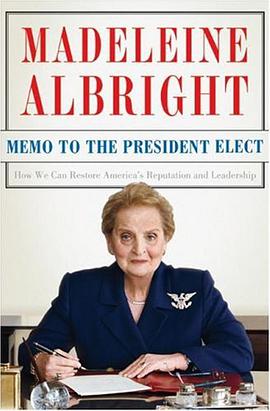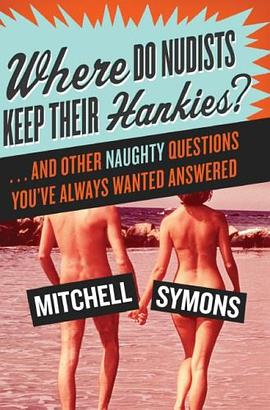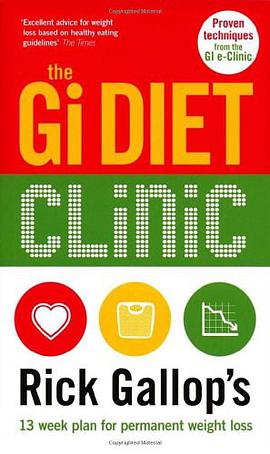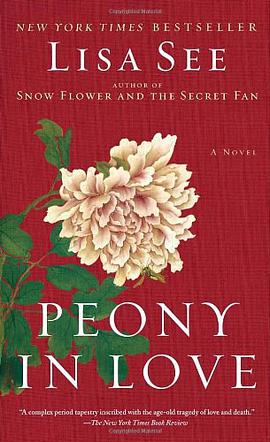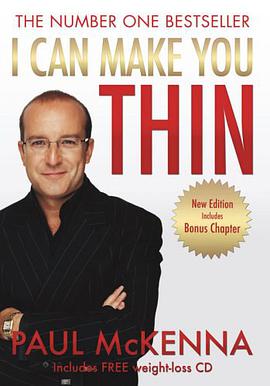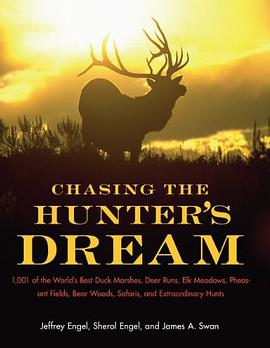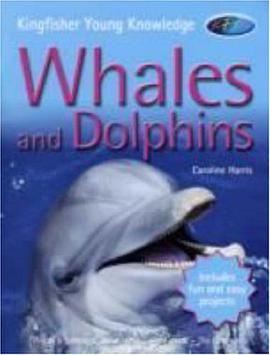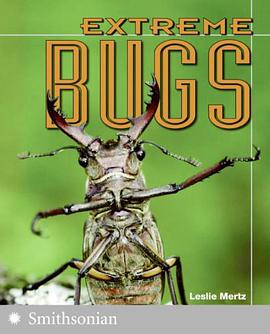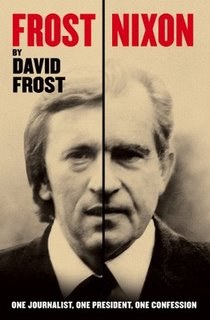

具体描述
在线阅读本书
Following the resounding success of the eponymous West End and Broadway hit play, Frost/Nixon tells the extraordinary story of how Sir David Frost pursued and landed the biggest fish of his career--and how the series drew larger audiences than any news interview ever had in the United States, before being shown all over the world. This is Frost's absorbing story of his pursuit of Richard Nixon, and is no less revealing of his own toughness and pertinacity than of the ex-President's elusiveness. Frost's encounters with such figures as Swifty Lazar, Ron Ziegler, potential sponsors, and Nixon as negotiator are nothing short of hilarious, and his insight into the taping of the programs themselves is fascinating. Frost/Nixon provides the authoritative account of the only public trial that Nixon would ever have, and a revelation of the man's character as it appeared in the stress of eleven grueling sessions before the cameras. Including historical perspective and transcripts of the edited interviews, this is the story of Sir David Frost's quest to produce one of the most dramatic pieces of television ever broadcast, described by commentators at the time as "a catharsis" for the American people. Questions for Sir David Frost Amazon.com: It must have been an extraordinary experience when you went to see Frost/Nixon the play for the first time. How did it feel? Frost: It was indeed a unique experience. But after about 20 minutes, I stopped thinking of Michael Sheen as "me" and more as "the Frost character." That was because I know and care about the underlying material so much and was concerned to see how that was depicted. When I interviewed Michael in December 2006, shortly after the Broadway production and the film had been announced, Michael said, "Do you realise? I'm going to be playing David Frost for the next year?" "That's a coincidence," I said, "so am I!" Amazon.com: When the producers of Frost/Nixon came to you for permission to adapt these events from your life into a play, they asked for complete editorial control over the story, which you say you hesitated before granting. That same control, of course, was one of the crucial agreements with Richard Nixon that gave your interviews such drama and importance. What was it like to grant the producers the same open-ended permission that Nixon had once given you? Frost: You are quite right--the editorial control that we had during the Nixon Interviews was absolutely essential. Essential for ensuring that the most important material was all included, and essential for the credibility of the interviews. As I describe in the book, the moment that Nixon's agent, Swifty Lazar, told me that his client had no problem with my having editorial control, that was a great relief, and indeed an extremely pleasant surprise. Swifty Lazar explained that Nixon was also aware of the need for the interviews to have complete credibility. Indeed during the interviews he went further and said that he regarded himself to be speaking under oath throughout the interviews. I suppose that the editorial control that I granted to Peter Morgan and Matthew Byam-Shaw for the play was somewhat different. I was in a sense giving them the right to fictionalise certain scenes--hopefully as few as possible--in the course of producing the play. There could never be any fictionalising in editing the Nixon Interviews because we were dealing solely with Nixon's own words, spoken by him. Amazon.com: Why do you think Nixon thought it was in his interest to participate in a public interrogation he had little control over? Frost: Richard Nixon often referred to "the power of television." When Jimmy Carter, who was President at the time the interviews were being taped, announced a fireside chat from the Oval Office, Nixon approved and said, "It's the tube. That's what matters. It's the tube." I think he hoped in this case that "the tube" would, in some way, exonerate him. The fact that I had not been on the nightly news every night of his Watergate ordeal may have made him think that I would be more independent or open-minded, and he may not have been wholly aware of some of the heavyweight interviews I had conducted in America and the UK. I think he was also in a state of some financial insecurity, not knowing for example how many of the people who were serving prison sentences for following his instructions might sue him when they were released. Amazon.com: Much of the drama of the interviews comes from this strange relationship at the heart of it: on one hand, you and Nixon were partners in producing this piece of televised theater, on the other you were adversaries, nearly prosecutor and defendant at times. Can you describe what it was like to negotiate that relationship in real time, once the interviews began? Frost: The tone of the relationship was affected by whatever the current topic of that days interview. On the first day of Watergate, we were indeed prosecutor and defendant, but when we were discussing the breakthrough to China, we were more like Johnson and Boswell. Once the arrangements were made and the interviews were underway, the arrangements faded into the background. Amazon.com: What role do you think the interviews played in America's experience of Nixon and Watergate? Americans like trials--was it the trial of the president that we never had? Frost: Yes, I think it was. Many commentators wrote that they felt the interviews--and particularly Watergate--were the catharsis that Americans needed after the traumatic events of 1973 and 1974. A few months after the interviews, Richard Nixon would probably have said that he regretted undertaking them because he admitted so much more in his mea culpa than he had planned to. However, even for Nixon, there was probably a longer term benefit, namely that he could not have returned to New York and "polite society" if he had never faced up to these issues in a forum which he did not control. Amazon.com: You've interviewed President Bush, as you have every president since Nixon. Could you imagine that he (and Vice President Cheney) would consider sitting down for such a series of retrospective interviews once they are out of office? If they sat down with you, what questions would you most want to ask them? Frost: I made a firm point with Nixon that he would not know any of the questions in advance, so Im scarcely likely to reveal the questions I would ask President Bush and Vice President Cheney more than a year ahead! Amazon.com: Is there one moment over any others that you particularly recall from the interviews? Frost: On the first day of the Watergate interviews, Nixon had admitted nothing--not even mistakes. That session was a disaster for him. On the second day, we made progress and he admitted to mistakes. However, he had to go a lot further. I said to him, "Coming to the sheer substance--would you go further than 'mistakes'? The word that seems not enough for people to understand." "Well, what word would you express?" It was the most heart-stopping response I have ever had in my life. I had spent hours cross-examining Richard Nixon. Now he wanted me to testify for him as well. Yet, unless I was able to frame with precision what it was we wanted to hear form him, the moment would be lost, never to be recaptured. As a symbolic gesture, I picked up my clipboard from my lap, and tossed it onto the floor beside my chair... As I tell in the book, I made my ad-lib statement of the three things that I felt the American people needed to hear, and the ensuing 20 minutes were the most intense I can ever remember as he addressed all three points in turn.
作者简介
目录信息
读后感
评分
评分
评分
评分
用户评价
这部作品的魅力在于它的“留白”和“聚焦”。它没有像一些传记片那样试图面面俱到地展示人物的一生,而是精准地抓住了那几个决定性的瞬间,然后用极其密集的镜头语言和对话,将所有情感和信息压缩进去。我尤其欣赏它对“时间感”的处理,很多场景似乎是永恒的凝固,但下一秒又被急促的剪辑打断,模拟了现实生活中信息爆炸和时间流逝带来的压迫感。它迫使观众去主动思考,去填补那些没有直接展示出来的心理活动。这种叙事策略,让观影体验变成了一种主动的参与,而不是被动的接受。两位核心人物的化学反应,简直是火花四溅,每一次交锋都像是精密的棋局,你永远不知道下一步会是将军还是被反制。看完后,我对着屏幕愣了好几分钟,脑海里反复回放着几个关键的眼神特写,那种复杂的、混合着恐惧、傲慢与疲惫的神情,久久不散。
评分这部电影(或者说,我想说的,是关于那段历史的记录)给我留下了极其深刻的印象,那种紧张感简直能穿透银幕。我一直对政治人物在镁光灯下的挣扎非常好奇,尤其是当他们面对公众审判的时候。导演的叙事手法非常高明,他没有急于下结论,而是耐心地铺陈了整个事件的背景,那种步步紧逼的氛围让人喘不过气来。特别是两位主角之间的心理博弈,简直是一场精彩绝伦的智力对决。我能清晰地感受到那种巨大的权力落差和随之而来的心理压力。观影过程中,我好几次屏住呼吸,生怕错过任何一个细微的表情变化,因为我知道,这些微妙之处往往隐藏着最真实的人性。这部作品的成功之处在于,它不仅仅是简单地复述历史事件,更是深入挖掘了人性在极端压力下的反应模式,让人在看完之后,久久不能平静,开始反思我们对“真相”的定义究竟是什么。演员们的表演堪称教科书级别,那种眼神的交流,肢体的语言,都透露出角色内心的挣扎与盘算,让人深信不疑他们就是那个时代背景下的真实人物。
评分坦白说,我原本以为这会是一部枯燥的历史文献式影片,毕竟涉及到高层政治和媒体伦理,听起来就有点沉闷。但出乎意料的是,它就像一部精心打磨的悬疑片,节奏把控得恰到好处。开场时那种看似平淡的日常铺陈,实则暗流涌动,为后续的冲突埋下了无数伏笔。最让我震撼的是它对“采访”这场行为的解构。它不再仅仅是问答环节,而是一场关于权力、记忆和自我救赎的角力场。你看那光影的运用,常常将人物置于一种审视或者被审视的境地,极大地增强了戏剧张力。影片对于细节的考究令人赞叹,那种复古的布景和服化道,瞬间就把人带回了那个特定的年代,仿佛我们也是旁听席上的一员,见证着历史的转折点。它用一种非常克制但又极具力量的方式,探讨了公众人物如何在谎言与承认之间走钢丝,这种对道德困境的探讨,远超出了单纯的政治范畴,触及了更深层次的社会心理学。
评分从制作层面来看,这部影片无疑是精良的典范。灯光设计简直是艺术品,它不仅仅是照明,更是情感的投射工具。很多室内场景,光线处理得阴沉而压抑,完美契合了角色们所处的道德灰色地带。再说说音效设计,那背景中细微的、若有似无的环境噪音,比如老旧的空调嗡嗡声、打字机的轻响,都极大地增强了场景的真实感和年代感,让人感觉自己好像真的坐在那个密闭的录音棚里。我特别欣赏它如何处理信息传递的载体——录像带和录音机的机械运转声,这些声音本身就带有一种不可逆转的、历史证物的重量感。这部片子没有冗余的煽情音乐来强行引导观众情绪,而是完全依靠剧本的张力和表演的深度来推动叙事,这份克制,恰恰是它最强大力量的来源。它证明了,最引人入胜的故事,往往只需要最简洁、最干净的呈现方式。
评分这部作品带给我的思考远超电影本身。它让我意识到,历史记录并非一成不变的铁板一块,它充满了主观的解读和权力的话语权争夺。影片巧妙地置入了一些“幕后花絮”般的片段,这些片段虽然没有直接干预主体事件,却像一个影子,不断提醒着观众:我们所看到的,是经过精心筛选和构建的版本。这种元叙事的手法非常高明,它挑战了观众对“客观事实”的盲目信任。观影结束后,我立刻去查阅了相关的历史资料,发现影片对某些情节的艺术化处理,引发了我更深层次的好奇心——究竟是哪个版本更接近“真相”?或者说,在信息被高度控制的环境下,“真相”本身是否已经失去了其原有的意义?这部电影成功的不是扮演了历史的记录者,而是成为了一面棱镜,折射出媒体、权力和个人责任之间复杂纠缠的关系网。它是一堂关于公众形象塑造与瓦解的生动课程。
评分very insightful
评分very insightful
评分very insightful
评分very insightful
评分very insightful
相关图书
本站所有内容均为互联网搜索引擎提供的公开搜索信息,本站不存储任何数据与内容,任何内容与数据均与本站无关,如有需要请联系相关搜索引擎包括但不限于百度,google,bing,sogou 等
© 2026 book.wenda123.org All Rights Reserved. 图书目录大全 版权所有


